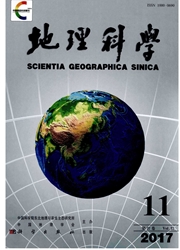

 中文摘要:
中文摘要:
目前,“一带一路”已成为中国的核心发展战略之一。借鉴尺度重构和尺度政治理论,分析“一带一路”战略的内涵、影响和风险。研究发现“一带一路”战略重构了现有的国家角色和地域形式,催生了以跨国基础设施为基础、以资本和经贸合作为支撑的新尺度。该尺度一方面被国际和国内的资本和权力关系不断重构,另一方面也在重构着现有的权力关系和资本积累过程。还从尺度政治视角出发探讨了“一带一路”战略中的风险因素。在国际层面,中国既面临着基于多边国际关系和地方抵抗的尺度上推力量,也面临着基于旧有边界和尺度化表达的尺度下推因素。在国内,“一带一路”战略既面临着地方政府基于政策争夺和地方保护主义产生的重复建设问题,也存在疆独势力等通过国际联系复杂化地方趋势的风险。为了更好地推行“一带一路”战略,中国必须积极应对这些尺度政治的挑战,深入研究尺度政治的机制和破解之道,努力化解海外投资、国际合作和地方治理中的风险。
 英文摘要:
英文摘要:
'One Belt, One Road' (OBOR) was proposed by President Xi Jinping in 2013 when he visited Ka- zakhstan and Indonesia. It is now the core regional development strategy in China. A series of studies (mainly in Chinese) have been conducted to provide the contextual knowledge or suggestion for this strategy. However, a theoretical examination of OBOR remains at the very superficial level among existing scholarship. This study aims to analyze the nature and impacts of OBOR from the perspective of rescaling and scalar politics, with a balanced consideration on the political geographical mechanisms and potential risks for promoting OBOR. It is argued that OBOR reshapes the roles and territoriality of Chinese state and produces a number of new geographical scales based on construction of international infrastructure, capital flows and trade coopera- tion. Specifically, the state power is re-territoralized through forming new international organizations and investing in the international infrastructure; the importance of some large cities are also highlighted as the nodes of OBOR. In other words, the inter-national processes are embedded in sub-national regions or new state spaces, confirming the previous theories on ' localization'. The rescaling strategies enable China to gain more influence on Eurasian geo-political and economic processes and more space to accelerate its capital accumulation. This echoes Lefebvre's arguments that the spatial fix of urban growth is based on scalar fixes. Therefore, it is interesting to note that the scale and power relations are mutually constructed. On the one hand, scale is pro- duced and reconstructed by both international and domestic political powers and capitals; on the other hand, the rescaling processes have great impacts on the existing power relations and capital accumulation. The perspective of scalar politics suggests that there are some potential hindrance and risks behind this new initiative. At the international level, China is not only facing complex up-
 同期刊论文项目
同期刊论文项目
 同项目期刊论文
同项目期刊论文
 期刊信息
期刊信息
